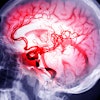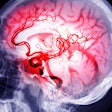
The oral microbiome, good and bad bacteria, fungi, and viruses in the mouth, may be linked to epilepsy, advancing the understanding of the oral cavity's role in neurological health. The study was published on October 9 in Epilepsia Open.
This study showcases the oral microbiome as an encouraging, unexplored path to new diagnostics and therapies for managing epilepsy, the authors wrote.
"It highlights the relationship of the microbiota with epilepsy, investigates potential inflammatory pathways impacting seizure onset, and suggests genetic evidence for risk assessment, early intervention, and inflammatory mechanism studies in epilepsy," wrote the authors, led by Lixiu Peng of the First Affiliated Hospital of Jinan University in China.
Gut microbiota can travel to the brain, activate the vagus nerve, and regulate immune responses, affecting the onset of epileptic seizures. However, the research related to epilepsy and the oral microbiota is limited or inconsistent, according to the study.
To explore the connection, the genomewide association study of East Asian populations, which encompasses 3,117 oral microbiota traits and epilepsy conditions, were analyzed.
After examining oral microbiota, 21 were linked to epilepsy. Of those, 14 were identified as risk factors for epilepsy and seven were deemed protective factors, the authors wrote.
Of the 14, Streptococcus mitis, Streptococcus pneumoniae, and Haemophilus, were positively associated with epilepsy. However, the oral microbiota, like Fusobacterium and Aggregatibacter, were not associated with epilepsy, they wrote.
Furthermore, the study had limitations. It failed to stratify by factors, including type of epilepsy and age, the authors wrote. In the future, more studies should be completed to more clearly understand the possible role of the oral microbiome in the pathogenesis of epilepsy, they wrote.
"This study underscores the effect of OM on epilepsy, suggesting potential mechanisms between the OM and epilepsy," Peng and coauthors wrote.




















